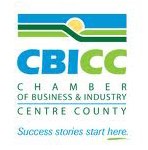State College, PA – Many years ago one of my mentors was famous for saying, “Half a loaf is better than none”. Maybe you’ve heard this old saying. It implies that it’s better to get half of something, than lose out accepting only the whole. I think of this phrase often when designing long-term care cases for our clients.
Early in my career at one point I specialized in long-term care planning. Long-term care companies encourage designing plans that provide benefits for worst-case scenarios, Cadillac plans. That’s great, if in fact there is a need for a worst case care scenario; however, the coverage required for that scenario often has a substantial premium attached. My experience, most people will risk their need for care and forgo the insurance realizing the premium will last their lifetime. Most will then simply not purchase the insurance or consider using an insurance company as a prudent hedge against a statistically high risk event.
What could involuntarily force you to spend down your life savings and wipe out your nest egg? When asked this question, the answer I predominately get, “Helping children and future care needs”. I would submit to you that helping children is voluntary. Can you think of anything other than the need for care that could involuntarily diminish your life savings and take away your independence? So how does one really design an effective plan to handle the potential need for care? Some options:
Self-insured (Savings)
Family (Immediate, Distant, Community, Church Families)
Medicare and/or Medicaid
Insurance (Traditional or Asset-based)
This brings us back to that loaf of bread. We practice the concept of co-insuring ones risk. I have found the best way to approach long-term care planning is from an inclusive perspective. It makes sense to utilize all the options available. If there are some funds available through Medicare utilize those, if you have family that will help, great! Beyond that it’s really a matter of self-insuring, that is using your life savings to pay for your care. We believe it makes more sense to add a component of insurance. Build a plan that we know is inadequate, one that may not cover the total need, rather than no plan and only use savings.
The Idea, rather than buying a Cadillac plan, will a Chevrolet plan work? The intent is to have a more palatable premium every year, a premium that does not create indigestion so to speak. If in fact you do end up needing long-term care it would be better to have reduced benefits than use all your cash. If you never end up needing care, you saved a bundle on insurance premiums. I have observed numerous occasions that folks will walk away risking it, rather than creating a comprehensive plan. Why? It’s sticker shock!
Get some coaching and design a plan that’s more Chevrolet oriented. You may find long-term care insurance planning is not that cost prohibitive. What often becomes prohibitive to getting more insured, is health underwriting! I had an insurance underwriter tell me “people buy insurance with their health; they pay for it with their money”. Don’t wait!




 Clarity Coaching Tips
Clarity Coaching Tips Common Sense Videos
Common Sense Videos It’s Your Money
It’s Your Money
